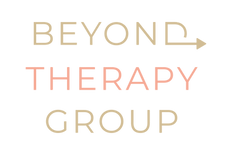WHY THERAPY IS IMPORTANT FOR MENTAL HEALTH CONDITIONS
Mental health treatment through established therapy approaches has advantages over self-treatment or medication alone. When you work with a qualified mental health provider, you get personalized care that addresses the root causes of your symptoms, not just temporary relief.
- Evidence-Based Success Rates: Cognitive behavioral therapy and other established treatments show 70-80% improvement rates in randomized controlled trials; many patients achieve full recovery from anxiety disorders and moderate depression.
- Personalized Treatment Plans: Every patient gets individualized care based on their specific mental health conditions, whether anxiety disorders, major depression, or co-occurring psychiatric disorders like post-traumatic stress disorder or obsessive-compulsive disorder.
- Long-term Benefits: Unlike short-term relief from medication alone, therapy provides coping skills and relaxation techniques that continue to work long after treatment is finished, reducing the risk of symptom return.
- Comprehensive Care: Many patients have multiple mental health conditions at the same time. Therapy addresses these complex presentations, including panic disorder, specific phobias, and other mental health problems that often occur together.
- Safety and Support: Working with a mental health professional ensures proper medical evaluation to rule out physical health problems that can worsen anxiety or depression, plus ongoing monitoring for any signs of increased risk or emerging symptoms.

OUR SERVICES
Individual Therapy for Adults
One-on-one sessions with licensed mental health professionals who specialize in treating mental health conditions. Our therapists use evidence-based approaches like cognitive behavioural therapy and interpersonal therapy, tailored to your specific anxiety symptoms and depression patterns. We offer flexible scheduling, including evening and weekend appointments, with in-person and telehealth options, so you can get the mental health services you need.
Specialized Programs
We offer targeted interventions for complex mental health conditions, including post-traumatic stress disorder, obsessive-compulsive disorder, and co-occurring substance abuse. These programs combine multiple therapeutic approaches and may include coordination with medical providers for comprehensive care addressing both mental health and physical health issues.
OUR EVIDENCE-BASED THERAPIES
Cognitive Behavioral Therapy (CBT)
The most researched and effective treatment for anxiety disorders and depression, CBT helps patients identify and change negative thought patterns that contribute to symptoms. This therapy typically takes 12-20 sessions and provides lasting coping skills that prevent relapse. The American Psychiatric Association's research consistently shows CBT as a first-line treatment for major depression and anxiety disorders.
Interpersonal Therapy (IPT)
This established treatment focuses on how relationships and major life events impact mood and anxiety symptoms. IPT is particularly effective for depression that stems from relationship conflicts, role transitions, or grief. Patients learn communication skills and strategies for managing stressful events while building stronger support networks.
Exposure Therapy
Specifically designed for anxiety disorders and specific phobias, exposure therapy gradually helps patients face feared situations in a controlled, supportive environment. This approach is especially effective for panic disorder, post-traumatic stress disorder, and obsessive-compulsive disorder, helping patients reduce avoidance behaviors that maintain anxiety symptoms.
Dialectical Behavior Therapy (DBT)
Originally developed for complex mental health conditions, DBT teaches powerful coping skills for managing intense emotions and stress. This therapy combines cognitive therapy techniques with mindfulness and distress tolerance skills, making it valuable for patients with severe anxiety or depression who struggle with emotional regulation.
Acceptance and Commitment Therapy (ACT)
This newer approach helps patients develop psychological flexibility and acceptance while working towards meaningful life goals. ACT is particularly helpful for patients who feel stuck in cycles of anxiety and depression, teaching mindfulness-based strategies for managing difficult feelings while maintaining well-being.
Mindfulness-Based Cognitive Therapy (MBCT)
Combining traditional cognitive therapy with mindfulness practices, MBCT is especially effective for preventing depression relapse and managing chronic anxiety. Patients learn to observe their thoughts and feelings without judgment, developing new relationships with difficult emotions that reduce their impact on daily functioning.
Eye Movement Desensitization and Reprocessing (EMDR)
A therapy for trauma-related anxiety and depression, EMDR helps patients process traumatic events that contribute to ongoing mental health problems. This approach is particularly effective for post-traumatic stress disorder and anxiety disorders that stem from specific traumatic experiences.
Behavioral Activation
This approach focuses on increasing engagement in meaningful activities to combat depression and anxiety symptoms. Patients work with their therapist to identify valued activities and gradually increase participation, counteracting the withdrawal and inactivity that often maintain depression and worsen anxiety.
Psychodynamic Therapy
This longer-term approach explores unconscious patterns and early life experiences that contribute to current mental health conditions. While requiring more time than short-term treatment options, psychodynamic therapy can provide deep insight and lasting change for patients with chronic or complex presentations.
Solution Focused Brief Therapy
This goal-oriented approach helps patients identify their strengths and develop practical solutions for immediate mental health concerns. Particularly useful for patients seeking short-term relief while building confidence in their ability to manage anxiety symptoms and mood difficulties.
OUR TREATMENT PROCESS
Step 1: Mental Health Assessment
This includes screening for anxiety disorders, major depression, and other mental health conditions such as panic disorder, post-traumatic stress disorder, or obsessive-compulsive disorder. We assess for physical health problems that might contribute to your symptoms, review family history, including mental health conditions in blood relatives, and assess for substance abuse or other factors that might affect treatment planning. Additional referrals to medical professionals may be made during this process when requested or indicated.
Step 2: Treatment Planning & Therapy
Based on your assessment, we will work with you to develop an individualized treatment plan that addresses your specific mental health needs. This includes selecting the most appropriate therapy approaches from our evidence-based options, determining optimal session frequency and duration, coordinating with medical providers when applicable, and setting realistic, measurable goals for symptom improvement and enhanced well-being.We may provide homework assignments and coping skills practice between sessions to reinforce learning new tools and skills. As the therapy continues, you and your therapist will have ongoing dialogue about therapy effectiveness while addressing emerging needs.
FREQUENTLY ASKED QUESTIONS
Many people start to see improvement in 4-8 sessions, with significant symptom reduction in 12-20 sessions of CBT or other established treatments. However, treatment length varies based on the severity of mental health conditions, the presence of co-occurring disorders, and the individual's response to therapy. Some people need short-term therapy for specific anxiety symptoms, while others with chronic mental health issues may need longer-term support to achieve lasting wellness.
Contact Us for Professional Mental Health Treatment
Get Started Today
Begin your journey to better mental health with our team of mental health professionals. Whether you're struggling with anxiety disorders, major depression, or other mental health conditions, we offer evidence-based treatment to help you achieve lasting symptom relief and wellness.
Ready to get started? Click here to schedule your free consultation and learn how our comprehensive therapy services can help you overcome anxiety and depression.
Don't wait to get the mental health support you deserve. Contact us today and see how therapy can change your life.

